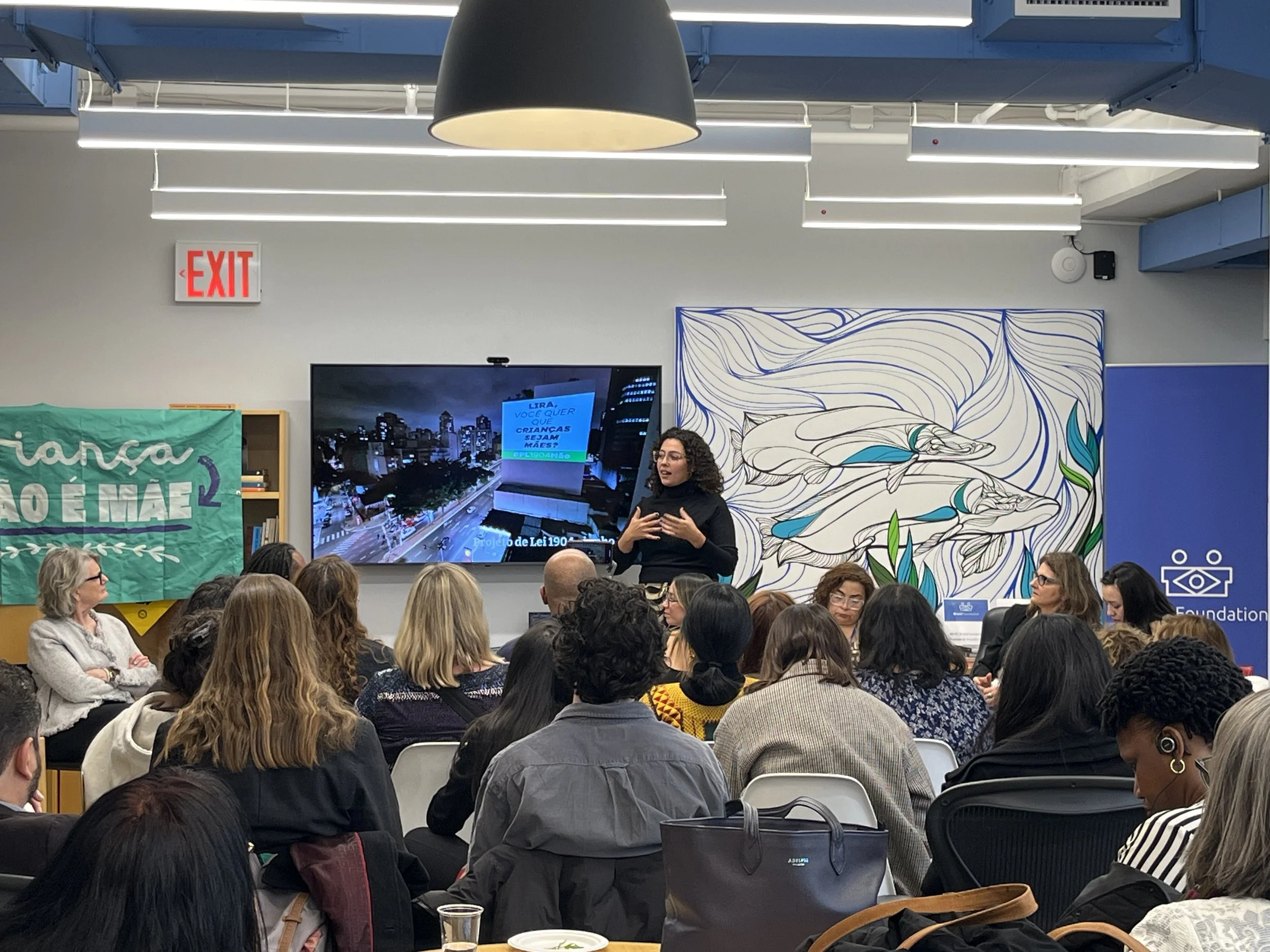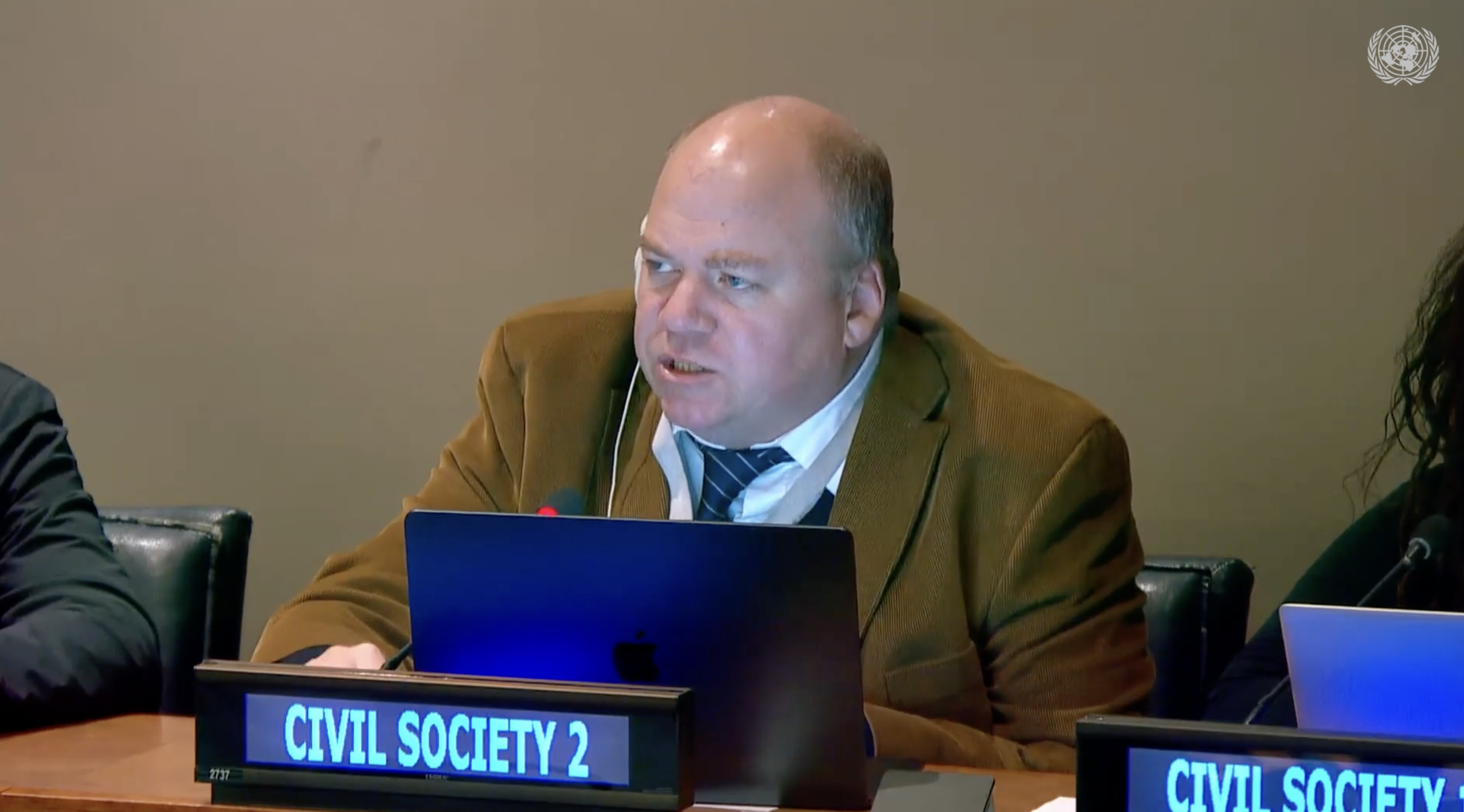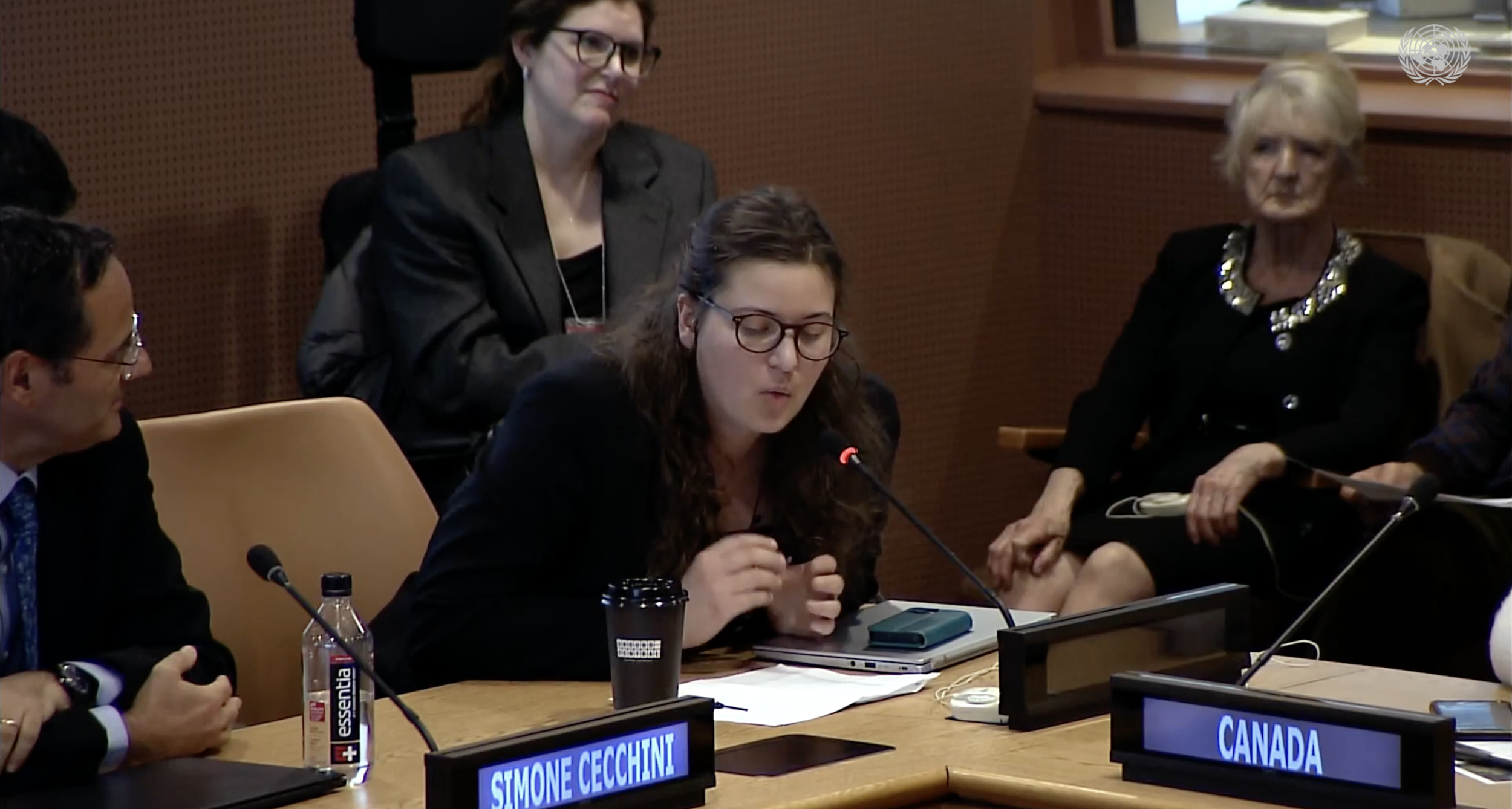Highlights of CPD58
Photo taken at the United Nations Headquarters during the 58th Session of the Conference on Population and Development
The overarching theme for this year’s UN Commission on Population and Development (CPD), “[e]nsuring healthy lives and promoting well-being for all at all ages” was broad enough to welcome significant discussions on a wide range of critical issues impacting people’s health worldwide. However, despite the pressing health-related needs of people, especially in developing countries, the commission ended up being sidetracked into an imposition of a controversial agenda on sexual and reproductive health, including abortion access
Worst of CPD58
🚨 UNFPA, the leading UN agency carrying out sexual and reproductive health (SRH) programming, partnered with IPPF and Plan International for an event entitled “Prioritizing SRH and SGBV in crises response.” IPPF is a major international organization providing abortions around the world. During the event, the UNFPA Executive Director expressed gratitude for their longstanding collaboration in areas affected by humanitarian crises. IPPF, a preferred partner of the broader UN system, receives funding support from UN Agencies and collaborates with them on various programmatic initiatives.
🚨 At a side event entitled “Building a Dignified Future for Girls: Addressing sexual violence and forced pregnancy in Brazil“, panelists lamented the large number of Christian policymakers in Brazil, arguing that policymakers with religious backgrounds have no place in the government. They also complained about the impact of Christian churches in Latin America. A diplomat from Mexico mentioned the need to “push for a non-religious state,” claiming that having a large number of faith-led legislators is an attack on democracy.
🚨 During a larger discussion on SRH at a UNFPA event entitled “Women with Disabilities: Health, Sexual and Reproductive Rights Without Barriers,” panelists brought up the need to ensure people with disabilities have access to abortions.
🚨 During one of the CPD58 general plenary meetings, a Norwegian Minister said that “it is hard to understand why [sexual and reproductive health] rights are controversial for some people.” Sexual and reproductive health and rights (SRHR) has been met with opposition since it was first introduced within the UN fora in the 1990s. The two sides of the debate, religious pro-lifers, and pro-abortion advocates, have always clashed over the morally charged question of whether abortion access should be construed as an international human right. The crux of the debate, often overlooked in secular circles, is that it involves two deep ethical questions 1) do babies in the womb have a right to life and 2) is it morally acceptable to kill that life? You can find a summary of the pro-life argument described by IYc blogger Colin Jung here
Best of CPD58
🔔 C-Fam delivered a statement in support of a vision of health that places the dignity of the human person at the center and that values the sanctity of life from conception to natural death. You can watch the recording here.
🔔 In its statement, the US stresses the importance of focusing on “population issues that unite us, not divide us.” The US talked about “rejoining the Geneva Consensus Declaration”, about a “restored focus on life and the family,” as well as “the administration’s unequivocal rejection of gender ideology extremism” and its efforts to challenge the “tendency to treat families and children as only a burden with immense cultural and economic factors wheeling against family formation." You can watch the statement here.
🔔 The Holy See also delivered a statement arguing for the “primacy of the human person and its God-given dignity at every stage of life” and that “[t]he family must be at the heart of these [CPD-related efforts] as the natural and fundamental group unit of society. ” The Holy See reaffirmed “that the promotion of health and wellbeing must begin with the inherent dignity of all people, at all stages of life from conception to natural death.”
🔔 The Permanent Mission of Djibouti to the UN, Family Watch International, and C-Fam hosted an event entitled Family-Oriented Development to Promote the Well-Being of Women and Children in Africa. Panelists talked about the importance of placing the family at the center of development. Rebecca Oas said the SDG agenda promotes a diluted focus on maternal health compared to the Millennium Development Goals and that the solution to decreasing maternal mortality is well-known to everybody and is far from the controversial ideas promoted under the sexual reproductive rights agenda. It includes things such as ensuring “sufficient numbers of well-trained and qualified healthcare providers at every level, access to modern medical equipment and high-quality medicines, access to emergency obstetric care and basic civic infrastructure,” Rebecca said. Christina Rangel from Exodus Cry talked about the harms of exposure to pornography during childhood and the importance of protecting kids through age verification laws. “A recent study shows that 45% of videos from only one major porn site and only 35% of videos from another include at least one act of physical aggression. Men inflicted the violence 75% of the time while women were the victim of this violence 97% of the time,” Rangel shared. You can watch the webcast here.
🔔 Several other pro-life groups delivered statements explaining why abortion must be kept out of UN discussions on health and well-being. Here is the statement from Campaign Life Coalition talking about the harmful nature of abortion, here is the statement from Concepts of Truth International mentioning the services they provide to help with the unseen trauma of women who underwent abortion, and here is the International Catholic Committee of Nurses and Medico-Social Assistants intervention discussing the life-saving health support their offering to women based on Catholic Teachings.
🔔 At "Ensuring Healthy Ageing for All: Challenges and Opportunities in an Ageing World," co-sponsored by Canada, UNFPA, WHO, and the International Longevity Centre Canada (ILC Canada), a Campaign Life Coalition representative challenged Canada’s policies on euthanasia saying, “In Canada’s latest report on medical aid in dying almost half of the patients who were euthanized in 2023 say being perceived as a burden by their family members, friends, and care-givers so my question is, why is Canada validating these feelings of being a burden by killing these patients by Euthenasia. Is Euthanasia disincentivizing efforts to ensure healthy aging for all?” You can watch the full exchange here.
🔔 A delegate from Gambia took the floor during the plenary to point to the real health needs of people in the developing world: accessing proper drugs and medical equipment to deal with illnesses. “Do those people have access to medical equipment and drugs?” the delegate asked. “Developing countries are not manufacturing all of these drugs: when we buy the same items we buy at a higher cost [...] what are we doing in the global health community to ensure access to medical drugs and medicine? [...] Do you have groups that talk about making provision of life-saving equipment and drugs available for the poor of the world?”









